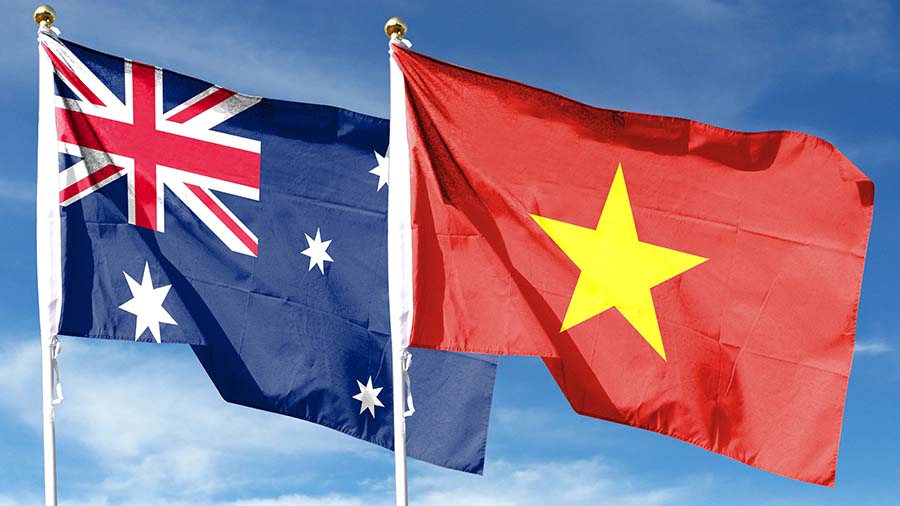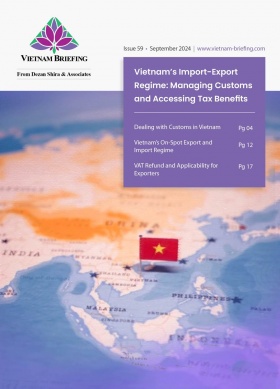An Overview of Vietnam’s Environmental Protection Tax in 2025
In December 2024, Vietnam’s National Assembly Standing Committee extended the environmental protection tax cut on petrol, oil, and lubricants until December 31, 2025, to support the economic recovery post-COVID-19. The tax reduction, originally set to end on January 1, 2025, was extended through Resolution 60/2024/UBTVQH15.
On the books since 2010, Vietnam’s Environmental Protection Tax has been a key pillar of Vietnam’s transition to a cleaner, greener economy. In this article, we break down the key details foreign investors should know.
Vietnam’s commitment to environmental protection
Like most countries around the world, Vietnam is trying to restructure its economy to be greener and more environmentally friendly. The rapidly developing Southeast Asian nation even committed to reaching net-zero emissions by 2050 at the 26th Conference of Parties (CoP26) in Glasgow in 2021.
To do this, Vietnam is looking toward greater investment in cleaner, greener power-generating technologies. Furthermore, it is also looking to utilize financial and market mechanisms to encourage firms to make their businesses more environmentally friendly.
Whereas a carbon market is still being developed, there has, for over a decade now, been an environmental protection tax (EPT) enshrined in Vietnamese law. This tax has brought in billions of dong in recent years and is a key piece to Vietnam’s net-zero puzzle.
Foreign firms that intend to do business in Vietnam should familiarize themselves with the tax and what it applies to in order to ensure they can adequately assess the cost of doing business in the country. In this light, in this article, we break down Vietnam’s Environmental Protection Tax, including what it applies to and the tax rates for the specific items covered.
What is subject to the Environmental Protection Tax?
Vietnam’s EPT applies to a number of goods that can potentially be hazardous to the environment if used in excess or improperly disposed of. These include:
- Fossil fuels including gasoline, aviation fuel, diesel, kerosene, fuel oil, lubricants, and grease (In the event of mixed fuels comprised of both biofuel and fossil-fuel-based fuels, the EPT only applies to the fossil-fuel-based portion.)
- Coal including brown coal, anthracite coal, and other coal
- Hydro-chloro-fluoro-carbon (HCFC) solutions
- Plastic bags made from single plastic film HDPE (high-density polyethylene resin), LDPE (Low-density polyethylene), or LLDPE (Linear low-density polyethylene resin), excluding pre-packaged goods
- Restricted-use herbicides
- Restricted-use termite pesticides
- Restricted-use forest product preservatives
- Restricted-use warehouse disinfectants
Environmental protection tax rates in Vietnam
In December 2024, Vietnam’s National Assembly (NA) Standing Committee agreed to extend the environmental protection tax cut on petrol, oil, and lubricants for the year 2025. This decision aims to support the economy in its recovery following the COVID-19 pandemic.
The tax reduction was originally set to expire on January 1, 2025. However, under Resolution 60/2024/UBTVQH15 issued recently by the committee, the tax cut will now continue for another year, lasting until December 31, 2025.
| Goods | Unit | VND | US$ |
| Gasoline, oil, grease | |||
| Gasoline, except ethanol | liter | 2,000 | 0.079 |
| Flight fuel | liter | 1,000 | 0.039 |
| Diesel oil | liter | 1,000 | 0.039 |
| Kerosene | liter | 600 | 0.024 |
| Fuel oil | liter | 1,000 | 0.039 |
| Lubricant | liter | 1,000 | 0.039 |
| Grease | kg | 1,000 | 0.039 |
| Coal | |||
| Brown coal | ton | 15,000 | 0.59 |
| Anthracite coal (anthracite) | ton | 30,000 | 1.18 |
| Coal fat | ton | 15,000 | 0.59 |
| Other coal | ton | 15,000 | 0.59 |
| Hydro-chloro-fluoro-carbon (HCFC) solution | kg | 5,000 | 0.20 |
| Plastic bags | kg | 50,000 | 1.97 |
| Restricted-use herbicides | kg | 500 | 0.02 |
| Restricted-use termite pesticides | kg | 1,000 | 0.039 |
| Restricted-use forest product preservatives | kg | 1,000 | 0.039 |
| Restricted-use warehouse disinfectants | kg | 1,000 | 0.039 |
Efforts to increase environmental protection
The Vietnamese government is placing significant emphasis on legal measures to enhance environmental protection in the country.
In 2023, the Ministry of Justice proposed increasing taxes on non-biodegradable packaging materials as part of a broader initiative to reduce their use in Vietnam. According to the ministry, the average Vietnamese household uses one kilogram of plastic bags monthly. The proposal aims to align the tax rate more closely with those in other parts of the world, as the current tax collected amounts to VND 50,000 (approximately US$1.97).
Additionally, during a session of Vietnam’s National Assembly in November 2024, delegates discussed a proposal to impose a special consumption tax on votive paper and related products. The growing trend of burning votive paper is raising environmental concerns and contributing significantly to waste.
Furthermore, it was suggested that products such as plastic bags, herbicides, and pesticides should be included on the list of items subject to the special consumption tax, as they have considerable impacts on the environment and pose health risks to the public.
Vietnam’s Environmental Protection Tax moving forward
Vietnam’s Environmental Protection Tax is a key pillar of its approach to reducing the impact of its economic development on the natural environment. Foreign firms that are looking to engage in business in Vietnam should be aware of the implications of this tax on their business. Vietnamese tax law, however, can sometimes be difficult to navigate and firms looking for support ensuring they are compliant with Vietnam’s EPT should consult local tax professionals like the tax experts at Dezan Shira and Associates.
(US$1 = VND 25,430)
(This article was originally published in November 2023. It was last updated on January 3, 2025.)
About Us
Vietnam Briefing is published by Asia Briefing, a subsidiary of Dezan Shira & Associates. We produce material for foreign investors throughout Asia, including ASEAN, China, and India. For editorial matters, contact us here and for a complimentary subscription to our products, please click here. For assistance with investments into Vietnam, please contact us at vietnam@dezshira.com or visit us at www.dezshira.com.
Dezan Shira & Associates assists foreign investors throughout Asia from offices across the world, including in Hanoi, Ho Chi Minh City, and Da Nang. We also maintain offices or have alliance partners assisting foreign investors in China, Hong Kong SAR, Dubai (UAE), Indonesia, Singapore, Philippines, Malaysia, Thailand, Bangladesh, Italy, Germany, the United States, and Australia.
- Previous Article Vietnam National Assembly Approves Law on Data
- Next Article Vietnam’s New Trade Union Law: Key Changes and Foreign Workers’ Rights































